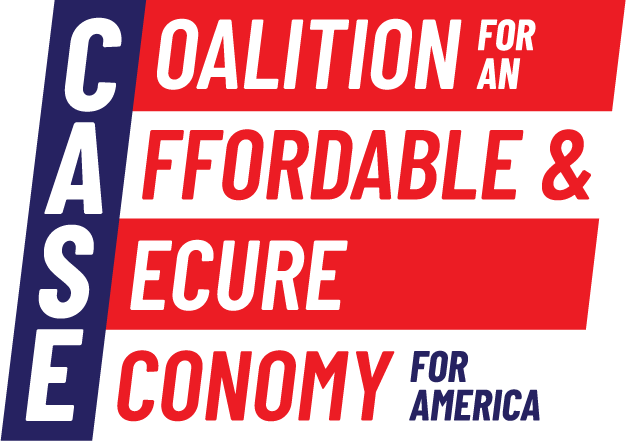
SUPPORT AN AFFORDABLE &
SECURE ECONOMY
FOR AMERICA.
SUPPORT AN AFFORDABLE &
SECURE ECONOMY
FOR AMERICA.

The Coalition for an Affordable and Secure Economy (CASE) for America advocates for strategic economic policies that benefit American families, workers and small businesses. Together, we aim to improve the affordability of household goods, support economic growth and safeguard our national security interests.
AMERICANS
DESERVE:
A Strong Economy
Cutting taxes and eliminating burdensome regulations will help create a stronger and more resilient U.S. economy.
AFFORDABILITY
American families shouldn’t have to do more with less. They want lower prices on everyday necessities, such as food, clothing and household products.
EFFECTIVE TRADE POLICY
U.S. trade policy should protect U.S. interests while reducing costs and promoting greater economic growth.
Small Business Stories
Pennsylvania
Prices are rising. Your paycheck isn’t. Tariffs are driving up the cost of everyday goods, from groceries to gas to school supplies. Lawmakers need to hear from you.
Speak up now →
This is not business as usual. Tariffs are pushing us toward higher prices, job losses and supply chain chaos.
Tell Congress: Enough is enough →
A $1,000 lawn mower may cost as much as $2,400 thanks to tariffs. Tools, fertilizer, even flowers are more expensive.
Families planting gardens to save money are paying the price at the hardware store instead.
Read more →
It takes less than a minute to make your voice heard. Tariffs are threatening our economy.
Speak out and demand smarter trade policy now →
Bridal shops. Toy stores. Local retailers. Tariffs are already raising prices and crippling supply chains.
Small business owners are warning: shelves will be empty without action. The clock is ticking.
Read more →
Tariffs are hidden taxes and they’re costing American families over $5,000 more each year.
Congress needs to fix this. Start by raising your voice →

9 IN 10 AMERICANS
are unhappy with food prices. While 3 IN 4 have negative views on gas and energy costs— showing just how deeply inflation still grips voters.
(Washington Post-Ipsos Poll)
